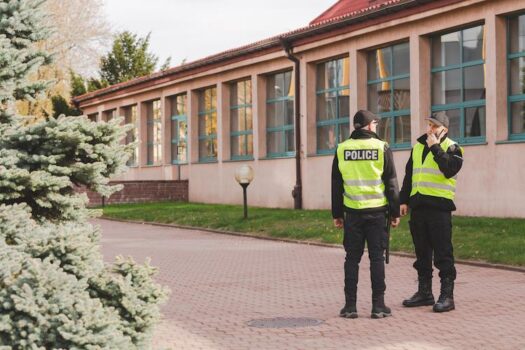
In Fuster v. Township of Chatham (A-33-23/089030) (Decided January 21, 2025), the Supreme Court of New Jersey ruled that the Chatham Township Police Department must release a body worn camera recording of a statement Plaintiff Antonio Fuster made to police because New Jersey’s Open Public records Act (OPRA) does not contain any explicit exemption for information received by law enforcement regarding an individual who was not arrested or charged.
Facts of Fuster v. Township of Chatham
In May 2022, Antonio Fuster went to the Chatham Township Police Department to report that his special needs child had accused an adult male relative of sexual misconduct. Police interviewed Fuster, and the conversation was recorded on a body worn camera. Fuster and his wife, Brianne Devine, reviewed the initial police report based on the interview and informed police that the report was inaccurate.
Fuster submitted an Open Public Records Act (OPRA) request for any written police reports and the body worn camera video footage of his interview. A records clerk denied the request for the video. The next day, Fuster submitted another OPRA request, this time stating that he was requesting copies of the video under the common law.
Fuster also emailed Chatham records custodian Gregory LaConte to request that the video recording be preserved for three years pursuant to the Body Worn Camera Law (BWCL) (N.J.S.A. 40A:14-118.5(k)). Subsection (k) of the BWCL instructs that “to effectuate” N.J.S.A. 40A:14-118.5(j)(2)(e), which allows a member of the public who is the subject of a body worn camera video to request that police retain the video for three years, “the member of the public . . . shall be permitted to review the body worn camera recording in accordance with the provisions of [OPRA] to determine whether to request a three-year retention period.”
Devine also submitted an OPRA Request Form, requesting to view the video of Fuster’s in-person interview “to determine whether or not to file a request for a 3 year retention period.” LaConte sent Fuster and Devine identical letters denying their OPRA requests.
Fuster and Devine (collectively, the Plaintiffs) filed a complaint against the Township of Chatham and LaConte (collectively, the Defendants). The trial court entered judgment in favor of the Defendants. The Appellate Division affirmed, concluding that the four “exemptions listed in N.J.S.A. 40A:14-118.5(l) are in addition to OPRA’s exemptions” and that “the video was exempt from disclosure under judicial case” law’s “well-established confidentiality exemption protecting an uncharged person’s law enforcement records from disclosure.”
NJ Supreme Court’s Decision in Fuster v. Township of Chatham
The New Jersey Supreme Court reversed, holding that the video should be released to the Plaintiffs.
The New Jersey Supreme Court first found that the Defendants erred in refusing to permit Fuster to review the video “to determine whether to request a three-year retention period.” However, because he went ahead and requested the extended retention period anyway, subsection (k) no longer granted Fuster the right to review the video.
“We hold that subsection (k) does not permit plaintiffs to review the video in this case, because Fuster has already requested that the video be retained for three years, and Devine is neither the subject of the video nor one of the other specified persons entitled to review,” Justice Rachel Wainer Apter wrote.
The New Jersey Supreme Court went on to find that OPRA does not contain any explicit exemption for information received by law enforcement regarding an individual who was not arrested or charged. “[B]efore OPRA was enacted, judicial case law in this state had not established or recognized any automatic grant of confidentiality for all law enforcement records related to a person not arrested or charged with an offense,” Wainer Apter said. “There was therefore nothing in this regard for OPRA to not ‘abrogate or erode’ under [the Body Worn Camera Law] when it came into effect. The Appellate Division erred in holding otherwise.”
“In terms of the privacy interests of the adult male relative, if Fuster wished to publicize the allegations, he could film himself making them again and broadcast the video on social media or to news sites,” Justice Wainer Apter added.
